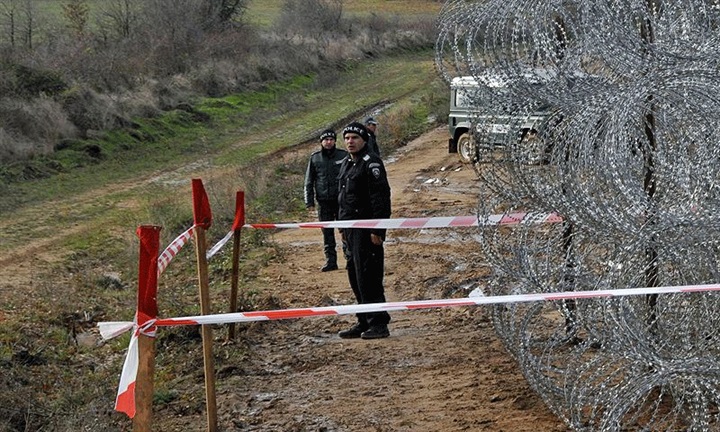Turkey exempting Bulgaria from refugee pressure card

The border between
Turkey and Bulgaria is considerably calm, even as Turkey's border with Greece
has reached the boiling point because of the flow of thousands of refugees, who
want to cross to Europe and escape the war in their countries, to it.
On March 1, Bulgarian
Minister of Defense, Krasimir Karakachanov, said conditions on his
country's border with Turkey remained calm.

Karakachanov said
his country would not allow anybody to cross into it in an illegal manner.
Bulgaria has taken a
decision to deploy more than 1,100 troops on the 300-kilometer border between
it and Turkey. It also placed barbed wire on the border line.
However, the calm on the
Turkish-Bulgarian border and the tension on the Turkish-Greek border raises
questions.
Bulgarian border
Relations between Turkey
and Bulgaria had not always been good. In 2016, Turkey kicked Bulgaria's
diplomatic representatives in it out after Sofia declared the Turkish consul a
"persona non grata" for interfering in Bulgarian affairs.
Ankara punished Sofia by
allowing refugees to flow on the Bulgarian border, which caused a lot of
suffering to the European state.
However, this did not
last long. Bulgaria succeeded in putting barbed wire on its border with Greece.
This made it difficult for the refugees to infiltrate in it. Greece could not
do this.

Economic interests
Economic interests
between Bulgaria and Turkey have played a major role in ending political
conflicts between the two states.
In 2017, the two
countries signed a cooperation agreement in the field of energy, natural gas
and electricity. They also agreed to remove hindrances on the way of joint
investments. In December 2019, Bulgaria agreed to allow Russian gas to reach
Europe through its own territory. The same pipeline will also cross Turkey.
Ottoman project dampened
Economic interests are
apparently dampening Turkey's dreams of reviving its Ottoman project,
especially in countries that shares history with Ankara.
Bulgarian Turks are an
outstanding component in relations between the two states. Sofia kicked the
Turkish consul out when he participated in religious occasions held by these
Bulgarians. It considered this an attempt to revive Ottoman influence in it.







